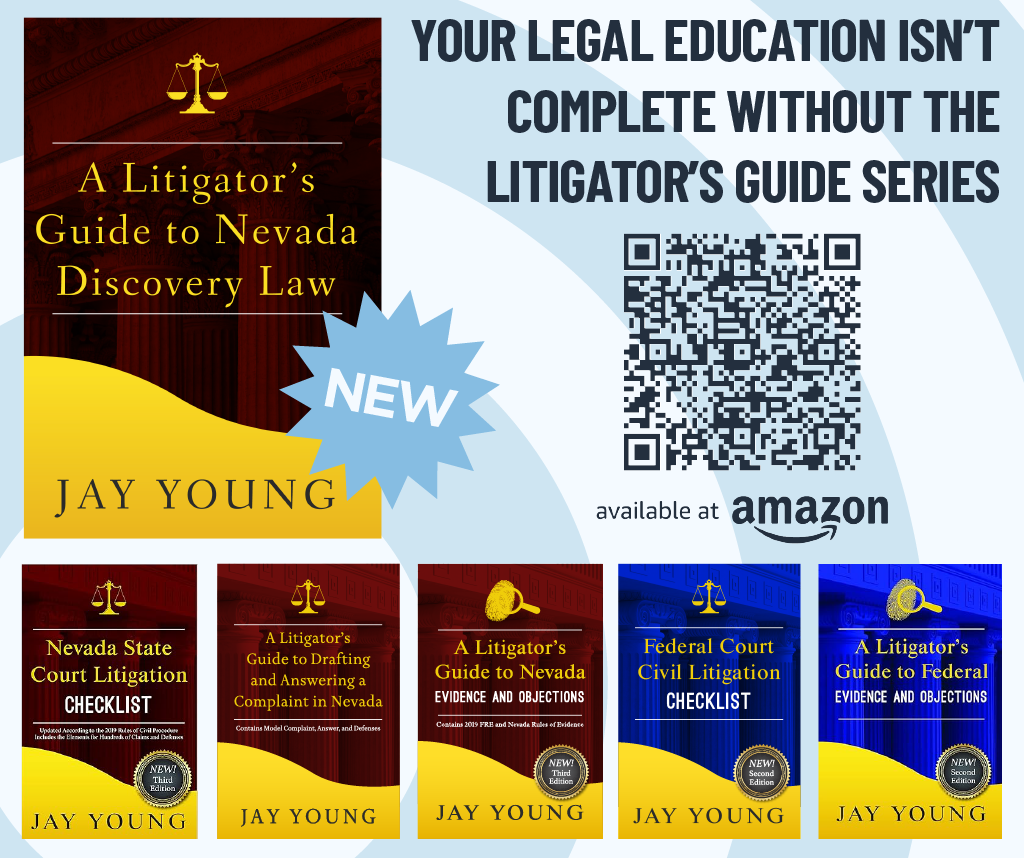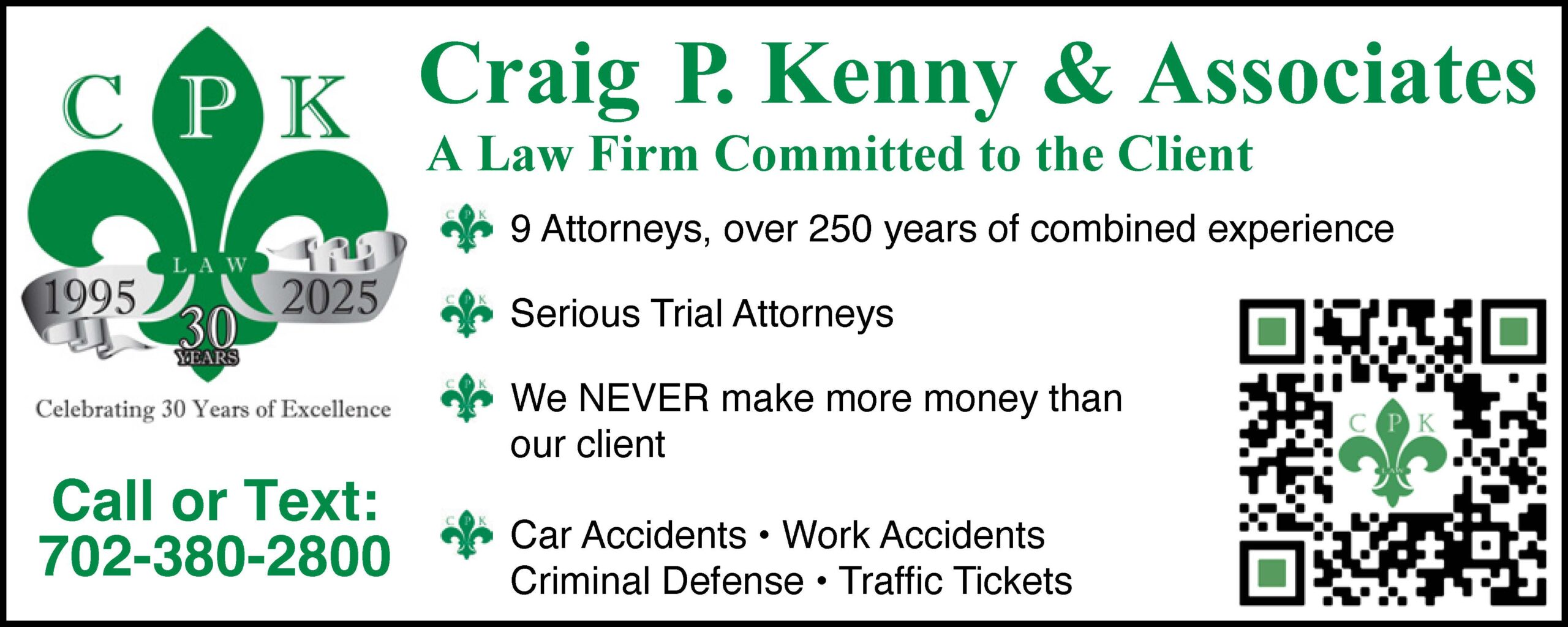- Quickdraw McLaw
- 24 Comments
- 260 Views
Two comments at the bottom of yesterday’s post talk about the cost of a campaign. Those estimate that a successful campaign will cost over $100,000. Does one really have to spend that much in this day with so much technology? What do you think? Is your opinion based on conjecture or first-hand knowledge? What about the emotional cost of a campaign that you’re not guaranteed to win? How does running for judge affect your relationship with your firm/coworkers, opposing counsel, and judges?



Why guess? Campaign finance disclosure reports are public records and searchable online. https://www.nvsos.gov/SoSCandidateServices/AnonymousAccess/CEFDSearchUU/Search.aspx#individual_search
Wow! I just searched 3 candidates from 2014 and one spent $115K, another $292K and another almost $400K. That is quite the disparity.
I will donate to those who file against incumbents, except Denton, Delaney, and a one or two others. And I do have some money, and I have record of donating.
Someday when I'm bored and have some time (hah!) I want to combine the C&E Report data with the election results to see whether and/or how closely the amount of money spent correlates with votes received.
My hypothesis is that in judicial races, which are officially non-partisan and in which the average voter has no clue and little skin in the game, that the correlation is very close.
That sounds like the old way of doing things. I'm wondering if especially this year there will be so much noise from other major races that judges can skate by on a shoestring and still have a competetive chance.
That there's a wide disparity in judicial campaign spending isn't all that surprising. How much a candidate needs to raise depends on whether there is an opponent and the quality of the opponent, how good of a campaigner the opponent is, and how much money the opponent is raising, among other factors.
Careful what you ask for, Bruce Gale is running. Just saying
It's only that expensive when you hire Letiza or similar agency that may for example, collect fees for ad placements and otherwise do little more than you than could do for yourself with a staffer. That said, this year will be more expensive than prior years because of the number of offices open for election – tv media cost will be off the chart this year.
the cost will be multiplied b/c this is a presidential campaign year so advertising rates go up.
I think the 8:17 post, at the bottom of yesterday's entries, is largely accurate about the general range of costs. But as 10:18 points out, and as 8:17 concedes, and as today's above preamble points out, it can all vary so much that no general rules, as to costs, can really be arrived at.
Wait for the forest of signs. Everywhere there is a dirt lot will be plastered with 50 plus "vote for me" signs.
Did Crystal Eller work for OBC, if so, oh hello no, I will not vote for her.
I don't believe so.
Eller was the traffic commissioner in Municipal Court and ran a well-funded ($200K or so) though unsuccessful race against Cedric Kerns, also Municipal Court.
She was briefly with the OBC. She screwed me on a bar matter, so no thanks. Don't ask for my vote or my money.
Red: Why'd you do it?
Andy: I didn't, since you ask.
Red: [chuckling] You're gonna fit right in. Everybody in here is innocent. Heywood, what're you in for?
Heywood: Didn't do it! Lawyer fucked me.
Ann Elworth was with OBC… I don't think Crystal Eller was. I could be wrong…
Fikisha Miller just filed to run against Kephart. Great website name by the way https://www.itistimeformiller.com/
Personally, I would have go with ItsMillerTime. Is that a trademark violation?
As of 2:00 on Thursday afternoon (a little over a week left to still file) here are the departments that are unopposed:
5: Terry Coffing
6: Jacqueline Bluth
7: Linda Bell
8: Trevor Atkin
9: Christina Silva
10: Tierra Jones
11: Betsy Gonzalez
12: Michelle Leavitt
13: Mark Denton
14: Adriana Escobar
15: Joe Hardy, Jr.
16: Tim Williams
17: Michael Villani
18: Mary Kay Holthus
20: Eric Johnson
22: Susan Johnson
25: Kathleen Delaney
26: Gloria Sturman
27: Nancy Allf
28: Ron Israel
29: David Jones
30: Jerry Wiese
31: Joanna Kishner
32: Rob Bare
A: William Voy
B: Linda Marquis
C: Rebecca Burton
D: Bob Teuton
E: Chuck Hoskin
F: Denise Gentile
G: Rhonda Forsberg
H: Art Ritchie
I: Sunny Bailey
K: Cynthia Giuliani
L: David Gibson, Jr.
N: Matthew Harter
O: Frank Sullivan
Q: Bryce Duckworth
R: Bill Henderson
S: Vincent Ochoa
Justice Court
Henderson 2: Stephen George
Henderson 3: David Gibson, Sr.
Las Vegas 11: Eric Goodman
Las Vegas 12: Diana Sullivan
Good. The more that remain unopposed, the fewer outstretched palms I will be encountering in the coming months.
"How does running for judge affect your relationship with your firm/coworkers, opposing counsel, and judges?"
I have never run for a judicial office, but I have run for statewide (not NV) office twice — two primary races and two general election campaigns. Each campaign was tremendously time-consuming — my billable hours plummeted from 2,000+ to about 850 for one campaign and to 600 for the second one. Every weekend and many work week evenings, I was at meetings and presentations and meet and greets. As often as possible, I was at fundraisers. I addressed every audience I could find! I pitched every group that could endorse me. I filmed and recorded 15 second and 30 second shots.
I approved campaign materials — yard signs were probably the most effective, and IMNHO, fliers and mailers and slates are a waste except to get the name out. Next time, just postcards with my name and office, a catchy slogan, maybe a picture, but no intelligent discussions of issues.
The campaigns completely disrupted my work schedule. I lost clients because I was not able to service them. Judges and opposing counsel were not sympathetic (but some opposing counsel did contribute $$). My co-workers were not very supportive in terms of helping me cover my work, except to assign me a couple of extra paralegals, but were generous with $$. It took at least a full year after the general election to recover in terms of my practice. I had expected that the publicity would help my practice, but it did not. I think in the one year after the election, only one prospective juror mentioned recognizing my name as a candidate, despite all of my campaign efforts!
Running for office is hard and expensive!
This sounds about right. Unless you can catch on in your younger life (pre 40 or so) and actually win one to put on your resume/yard signs, the cost/benefit just isn't there. There are plenty of good people who would love the actual job of being a judge who have zero interest in campaigning/torpedoing their existing practice. I, for one, am not one of those people.
I have been a finalist, and thus proceeded to the general election in two county-wide judicial races, after surviving crowded and bruising primaries. Even though the experiences of 2:17 were related to non-judicial political campaigns, the post hits the nail on the head as to the enormous expenditures of time, and how it affects billing and time spent on the practice, etc.
I also agree that providing material for people to read, or otherwise getting too compact and detailed with information, is a great waste of time and money. We are grateful if people even get down the ballot far enough to vote for judges, so the point is to reinforce the name, and often nothing else really matters in many judicial races(except the few controversial ones where there may be an actual "issue").So, even though people, when surveyed, will never admit they voted for anyone based on road signs, many judicial races are decided by name recognition, and road signs are sometimes an effective way to help build such name recognition. But expensive pamphlets with "My 14 Points For Improving District Court" is a gross waste of time and money, yet many consultants believe that a really polished and professional campaign requires position papers or a cerebral discussion on issues, but they do not.
And my experience was the same as 2:17 in that I rationalized that the situation was a win/win in that if I win then obviously I have won, and if I lose I still win because the race will help generate business. So, I will say that I lost the first race, and although it did seem to somewhat increase my name familiarity within the legal community, this modestly enhanced name recognition did not really result in other attorneys thinking of me when they were referring business. Whatever opinion they had of me as an attorney before I ran for election was not likely to improve after I spent
a year campaigning, which results in far less time practicing law.